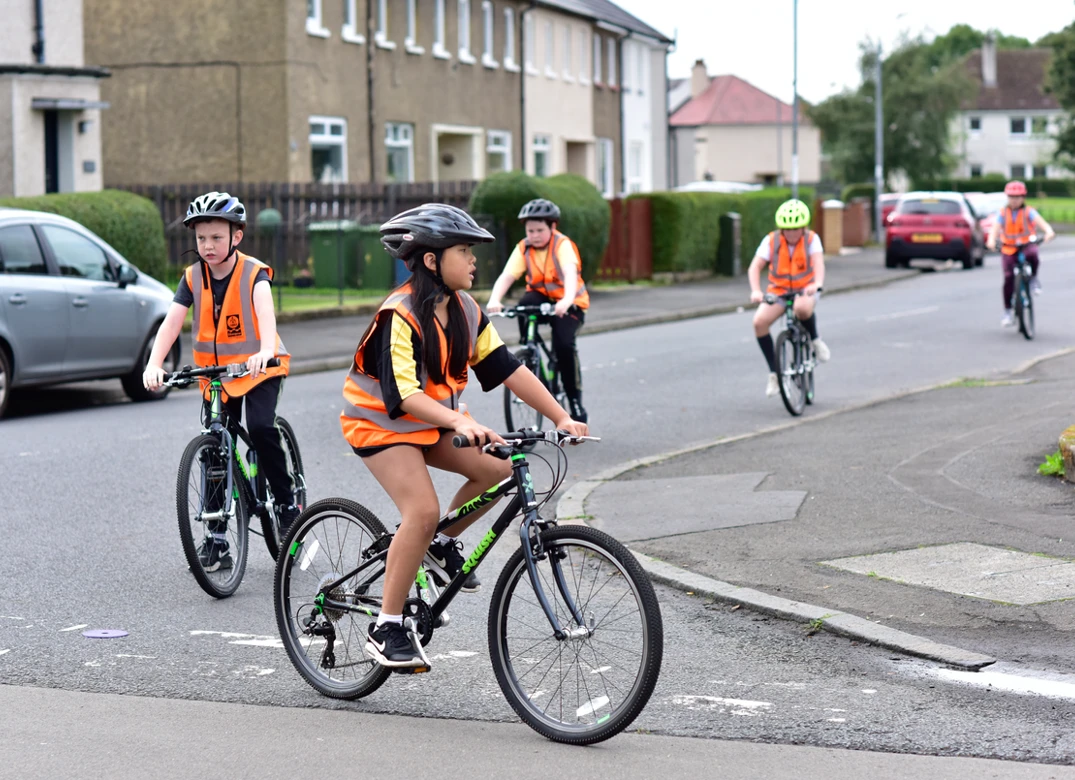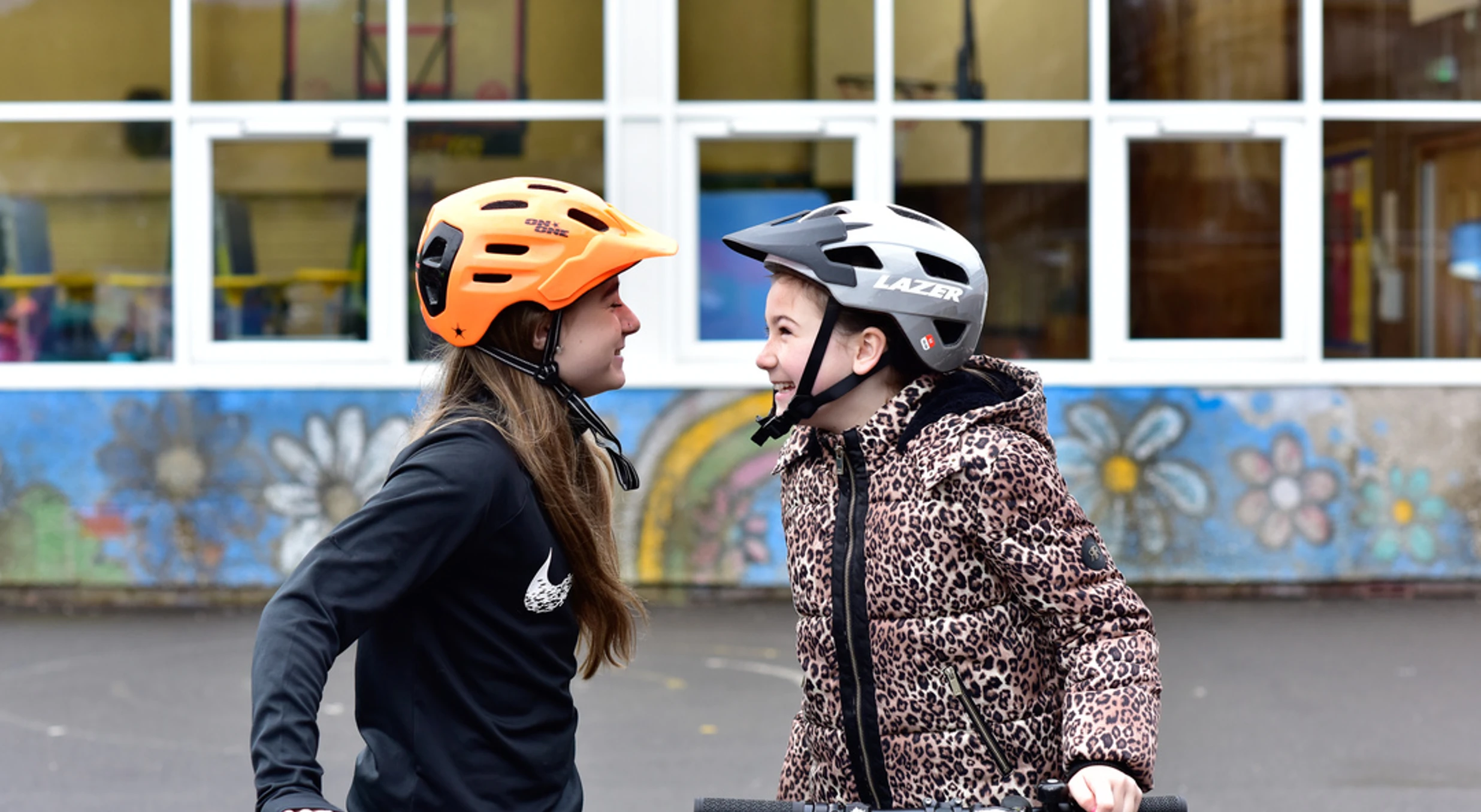Results from a three-year evaluation of Bikeability Scotland on-road (Level 2) training show a clear link between training and increased cycling frequency.
4,655 pupils from P6, P7, S1 and S2, in urban and rural areas across Scotland, participated in an independent study of Bikeability Scotland training over three academic years (2021-22, 2022-23 and 2023-24).
The findings show that pupils who participate in Bikeability Scotland cycle more frequently after training, and perform better in related knowledge and hazard awareness tests, than those that don’t. Importantly this impact is long-term: secondary pupils who had received training during primary school were up to 13% more likely to cycle than those who hadn’t.
The study also showed that Bikeability Scotland has a greater impact in areas of higher deprivation, particularly on cycling frequency and bike ownership. Ensuring access to road safety education like Bikeability makes an important contribution to tackling road safety inequality, with evidence showing that people living in areas of deprivation are at greater risk of being injured.

Since its introduction in 2011, more than half-a-million pupils have participated in Bikeability Scotland, enabling young people to gain the skill and confidence to travel by bike, now and in the future.
Harry a pupil from Livingstone, describes his experience of Bikeability Scotland: “I thought we would just be doing different games or different activities on the bikes but it was more like what you would actually do on the road or in real life. Teaching you those skills that you actually need.”
Educating young people about road awareness and cycling on roads is a key part of improving road safety. Recent research commissioned by the Bikeability Trust shows that local authorities in England with higher levels of Bikeability Level 2 training are experiencing lower rates of serious road injuries and fatalities. And cycling experience is linked to generally safer road use: research shows people who regularly cycle demonstrate safer behaviours, whether cycling or driving.
Martin Collins – Depute Head Teacher, Hythehill Primary, Moray says “If you can get Bikeability up and running and help young people to get on bikes, it can change someone’s life. These are life skills, and these are ways that people think about how they live and that can all begin within a primary school.”
Bikeability is managed by Cycling Scotland and is delivered in partnership, with funding from Transport Scotland. Cycle training is delivered under the statutory powers of Scottish local authorities and is overseen by a delivery group including Road Safety Scotland and Education Scotland.
More than 2,000 certified instructors, including staff and parent volunteers, help address barriers to ensure children across Scotland can access cycle training.
Support, including access to instructors, resources and coordination time, is available for every primary school in Scotland - visit bikeability.scot for more information.

